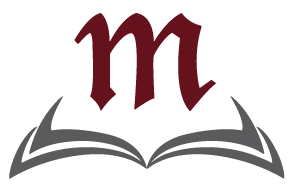Recently, in Carrie Thompson’s 8th grade English class at Marion County Middle School, students read the story of Pandora’s Box and then rotated through a series of stations where they completed close reading activities with materials printed on copy paper or thicker card stock. Students were tasked with thinking about typical literary elements such as plot, character development, and theme. It may seem like a normal set of classroom activities, but it was actually a part of a larger initiative at Marion County Middle School: a monthly Screen Free day.
For the entire school day, students did not use their school-issued Chromebooks nor did teachers use their classroom’s ViewSonic video boards.
Instead, lessons and activities were designed using non-digital means -- handouts, laminated cards, stations, even the school’s outdoor classroom.
“It honestly made it a school day where it wasn’t a normal routine and the kids were excited,” Thompson said. “Everything flowed so well -- they were constantly busy and engaged.”
The idea came from MCMS Principal Amanda Farmer with the plan being to designate the last instructional day of each month as a Screen Free day.
While it was only the school’s first Screen Free day, according to Thompson it was a tremendous success for a variety of reasons.
“I know that the kids were less stressed that day,” she said, adding that often students worry about making sure Chromebooks are charged. “There were lots of smiles, and students were still talking about it days later. They don’t talk about Chromebook activities like that.”
Thompson also noticed increased interaction among students, which she said is especially important at the middle school level.
“It forces them to have discussions with peers instead of interacting with a computer,” Thompson said, adding that some students struggle to socialize in-person instead of through technology. “They’re learning who they are, what they like and don’t like and it’s important to be able to communicate appropriately at this age.”
Students also had high praise for the screen reprieve.
“It was just easier with less of a headache after school from the screen,” 8th grader Ehzura Summers explained. “You’re able to do work without having to look at too many things at once.”
He wasn’t the only student who referenced the absence of screen-induced headaches.
“Sometimes if I’m staring at my computer for multiple class periods in a row my head starts to get tired and it hurts,” 8th grader Ava Downs said. “But that day was like a breath of fresh air.”
She added that getting to go outside in Mrs. Julie Hunt’s math class to learn about perfect squares “was really fun.”
Downs also said she found herself working in groups more often throughout the day whereas activities using Chromebooks tend to be more individually-focused.
“It’s a lot easier on paper to work on group activities,” she said.
Seventh-grader Amelia Mattingly but in plainly: “I loved that day,” she said with no hesitation. For her, class work completed on screens doesn’t lend itself to group work, and it’s when she’s collaborating with her peers that she feels she understands concepts better.
“I liked in Ms. Hillman’s class, when we were reading, we moved from table to table,” Mattingly added.
When the idea was first mentioned to the faculty, Thompson said teachers were up to the challenge of setting aside the technology they had become accustomed to using daily.
“We were excited,” Thompson said. “We bought in [...] I think a lot of teachers are trying to get out of their comfort zone and get out of that habit of putting it online all of the time.”
Sixth-grader Kinley Willett said when students were first told about the upcoming screen free day, she had a hard time conceptualizing what that day would be like. But afterward, she said she was a big fan.
“It was really simple and I just really liked it,” Willett said, adding that she sometimes feels anxious when dealing with Chromebooks. “I honestly think they should have it more often -- maybe twice a month.”
It’s a practice that MCPS Superintendent Chris Brady would like to see more of as well -- but not just at MCMS.
“I’m hoping all of our schools will use Marion County Middle School as an example and look to implement their own Screen Free days,” Brady said. “Chromebooks and educational technology serve a purpose, but the research is very clear that it should either allow a student to do something he or she wouldn’t be able to do otherwise or enhance the work that students are doing [...] when technology is only used as a replacement, it really isn’t improving outcomes. At one time there may have been a novelty to Chromebooks that popularized them, but that novelty has long since passed. We need to view them more as a complement to strong teaching.”
Thompson agrees.
“My hope is that it becomes just a tool instead of the core of what holds a classroom lesson together,” she said. “I enjoy building activities and getting the kids out of their seats. By getting up and moving and talking, they’re learning so much more.
“As a parent, I want to know that my kid can come to school and learn something without the crutch of a Chromebook.”
Seth Patterson, a seventh-grader, also sees a dependence on Chromebooks coming to an end.
“I’m not the biggest fan of Chromebooks. They’re neat and all, and it’s easier to type, but I’ve never been the biggest fan of them myself,” he said, adding that he looks forward to future Screen Free days and hopes they involve writing assignments. “I think Chromebooks are kind of fading into obscurity a bit from what I’ve noticed.”

